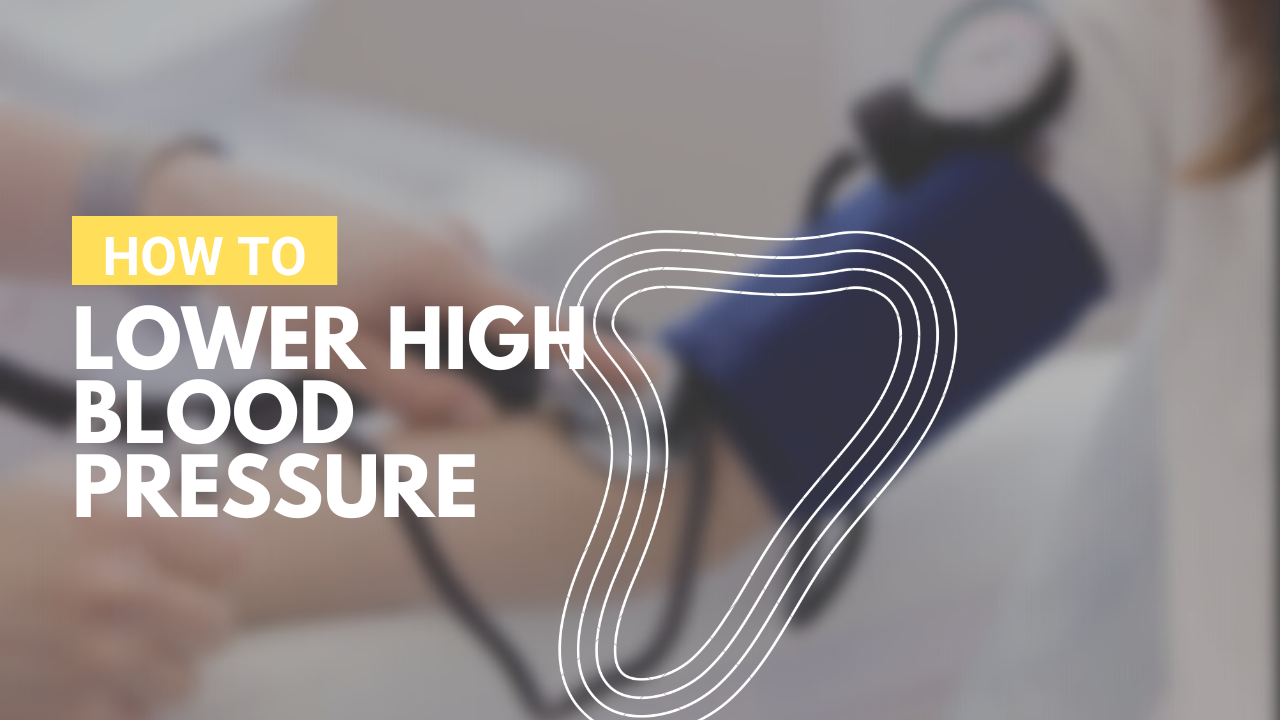High blood pressure is a dangerous condition that can damage your heart as well as other important organs. It affects one-third of people in the US. And 1 billion people in the world. If left uncontrolled, it increases your risk of heart disease and kidney failure. In this article, we share our top tips to lower blood pressure.
1. Walk and exercise regularly
Exercise is one of the best things you can do to lower high blood pressure and maintain all other functions in the body. Regular exercise helps make your heart healthier and more efficient at pumping blood, which lowers the pressure in your arteries. 150 minutes of average exercise, such as walking, or 75 minutes of vigorous exercise, such as running per week, can help lower blood pressure and make better your heart health. What's more, doing even more exercise decrease your blood pressure even further.
2. Decrease your sodium intake
Intake of salt is high around the world. In large part, this is due to junk and prepared foods. For this reason, many public health efforts are aimed at lowering the amount of salt in the food industry. In many studies, salt has been directly linked to high blood pressure and heart events like stroke.
However, more latest research implies that the relationship between sodium and high blood pressure is less clear. One cause for this may be genetic differences in how people process sodium. About half of people with high blood pressure and a quarter of people with normal levels seem to have salt sensitivity.
If you already have high blood pressure, it's worth limiting your sodium intake to see if it makes a difference. Exchange processed foods with fresh ones and try seasoning with herbs and spices rather than salt intake.
3. Drink less alcohol
Drinking alcohol can raise blood pressure. Alcohol is related to 16% of high blood pressure cases worldwide. While some research has recommended that low to intermediate amounts of alcohol may protect the heart, those advantages may be compensated by harmful effects. In the US.
Mild alcohol consumption is described as no more than one drink a day for women and two for men. If you drink more then decrease that.
4. Eat potassium-rich foods
Potassium is an important mineral. It plays an important role to get rid of sodium and reducing pressure on your blood vessels.
Present diets have increased most people's sodium intake while decreasing potassium intake. To get an adequate balance of potassium to sodium in your diet, focus on eating fewer junk foods and more fresh whole foods.
5. Cut back on caffeine
If you've ever downed a cup of coffee before you've had your blood pressure taken, you will figure out that caffeine causes an instant boost. However, there's not a lot of evidence to suggest that drinking caffeine regularly can result in lasting increases.
People who drink coffee and tea tend to have a lower risk of heart disease, including high blood pressure, than those who don't.
Caffeine may have a stronger and more effect on people who don't drink it regularly. If you guess that you are caffeine sensitive, then decrease to see if it lowers your blood pressure.
6. Manage stress
Stress is the main cause of high blood pressure and heart disease. When you're chronically stressed, your body is in a continuous fight or flight mode. On a physical level, that means a speedy heart rate and tightened blood vessels.
When you undergo stress, you might also be more likely to engage in other behaviors, such as drinking alcohol or eating unhealthy food that can negatively impact your blood pressure.
7. Eat dark chocolate or cocoa
Here's a piece of advice you can get behind while eating massive amounts of chocolate probably won't help your heart, small amounts may.
That's because dark chocolate and cocoa powder are rich in flavonoid plant compounds that cause blood vessels to dilate. A review of studies discovered that flavonoid-rich cocoa improved several markers of heart health over the short term, including lowering blood pressure. For the strongest effects, use non-alkalized cocoa powder, which is particularly high in flavonoids and has no added sugars. And for our final tip, we recommend losing weight if you're overweight.
8. Losing weight
Weight loss can make a big difference in your heart health. According to a 2016 study, losing 5% of your body mass could particularly lower high blood pressure. In previous studies, losing £17 or 7.7 kg was linked to lowering systolic blood pressure by 8.5 and diastolic blood pressure by 6.5 mmHg. To put that in perspective, a healthy reading should be less than 120 over 80 mmHg.
The effect is even wonderful when weight loss is paired with exercise. Losing weight can enable your blood vessels to do a better job of expanding and contracting, making it comfortable for the left ventricle of the heart to pump blood.


Comments
Post a Comment